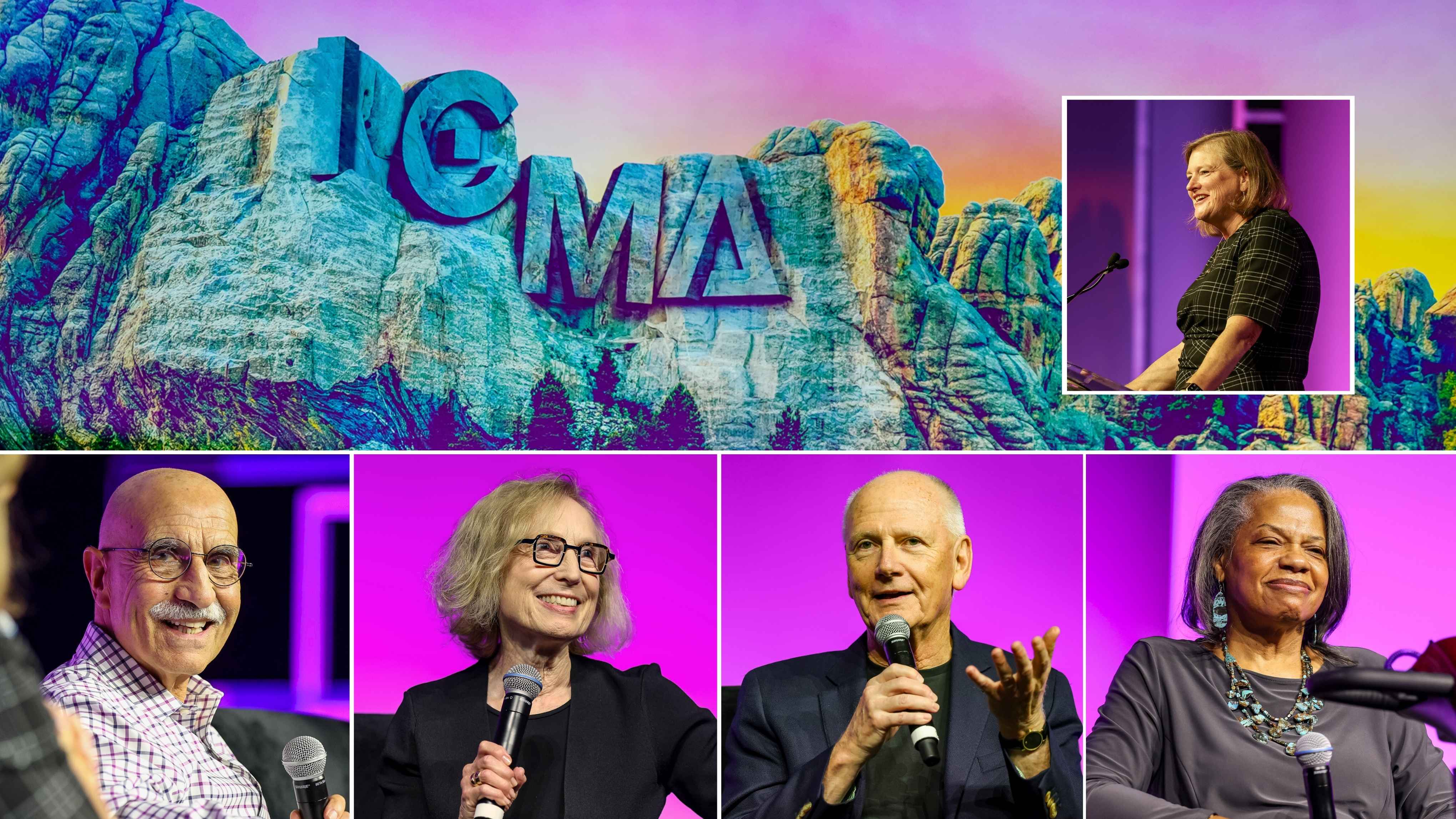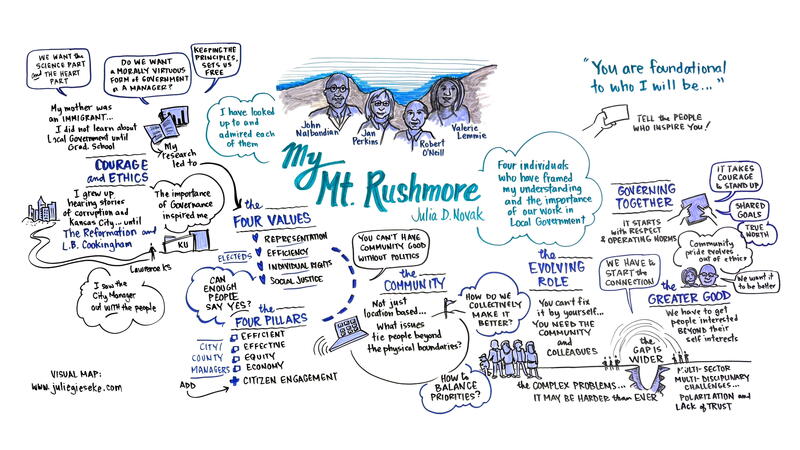
Leading a community today means facing challenges unlike any that came before. Trust in government is fragile, public discourse is polarized, misinformation spreads virally, and every decision is scrutinized in real time. To navigate this, local government leaders can draw strength from the lessons and values that built the profession itself.
What does it take to lead successfully in 2025 and beyond? Julia D. Novak, ICMA-CM, CEO and executive director of ICMA, reminds her peers, “You need structure, you need principles, and you need good governance.”
Novak’s “My Mount Rushmore” keynote panel discussion at the 2025 ICMA Annual Conference brought together four icons of local government: Valerie Lemmie, John Nalbandian, Jan Perkins, and Robert O’Neill. Together, they explored how ethics, courage, and collaboration enable today’s managers to lead through change.
Their reflections are not about nostalgia. These are urgent takeaways to help local government leaders move forward.
1. Lead Beyond the Walls of City Hall
Valerie Lemmie, senior adviser for state and local government at the Kettering Foundation and former city manager, notes that today’s managers must lead far beyond city hall. She says leaders can no longer rely on bureaucracy alone to solve community problems. Real progress, she explains, requires partnership with colleagues, residents, and regional collaborators.
Lemmie learned through experience that lasting change depends on others, even residents. “You can’t fix any problem on your own. You need your partners in city hall, and you need your community,” she said. “We must recognize the value of engaging with everyday people.”
She adds that modern managers must engage more deeply across regions and civic networks, calling people together to address shared challenges.
In a time when trust is fragile, collaboration is not optional. It is essential.
2. Find Fairness in Politics
John Nalbandian, PhD, professor emeritus at the University of Kansas and former mayor of Lawrence, Kansas, reminds local government professionals that politics are not the enemy of good management. They are part of democracy’s foundation.
“You can’t have community good without politics,” he said. “What’s the balance between majority rule and individual rights? Well, that’s why we have politics.”
Nalbandian explains that leaders must recognize that every decision involves balancing representation, efficiency, equity, and individual rights. The goal is not to eliminate political tension but to navigate it with purpose, fairness, and integrity.
“In some ways,” he added, “Thinking politically is thinking virtuously.” From that perspective, politics can be the space where professional managers and elected officials work together to serve the greater good.

3. Anchor in Ethics
Jan Perkins, ICMA-CM, vice president at Raftelis and former city manager, observes that the expectations placed on local government leaders continue to grow as society becomes more complex. She describes a profession tested by new forms of scrutiny and civic pressure.
“City managers have always had challenges,” she said. “But the rise of social media and the age of harassment that public officials are facing are making it harder … City managers are simply going to have to lead in a different way, not just administrate.”
Perkins points to the ICMA Code of Ethics as the profession’s compass. The principles in the code, she says, keep managers grounded when decisions become polarized. “I think those principles embedded in the code of ethics are fundamental to the well-being of our communities and will hold us all in good stead when we have difficult decisions to make.”
For Perkins, professional ethics are not just a safeguard. They are a source of courage. “They can almost set us free if we adhere to them,” she said. They allow managers to speak honestly, stay principled, and model the transparency that builds trust.
4. Find Common Ground
Robert “Bob” O’Neill, Jr., ICMA-CM, former ICMA executive director, former city manager, and now executive in residence at the Riley Center, says local government leaders must help communities reconnect across divides. He argues that progress depends on finding common ground and focusing on shared values instead of differences.
“We’ve got to get out of the typologies of things like ‘red’ and ‘blue’ and the things that, by labeling, divide people,” he said. “What we’ve done is isolate ourselves to the point where we can’t talk.”
O’Neill says, in reality, most people will agree on what truly matters for their communities. That’s the space where leaders can move beyond polarization and bring people together. “I think we, as a profession, have to start the connection. Because if it’s not us, who?”
During his years as ICMA’s executive director, O’Neill often asked residents around the world about their communities. “Not once, ever in my fourteen years of travel, did any person say to me, I want my community to get worse,” O’Neill said. “They all want their community to get better. We differ on the tactics … but at the end of the day, everyone has an emotional, psychological, and financial investment in their community.”
That shared investment is the foundation for rebuilding trust, bridging divides, and moving forward together.
Watch ICMA TV to see more from the 2025 ICMA Annual Conference!
New, Reduced Membership Dues
A new, reduced dues rate is available for CAOs/ACAOs, along with additional discounts for those in smaller communities, has been implemented. Learn more and be sure to join or renew today!
